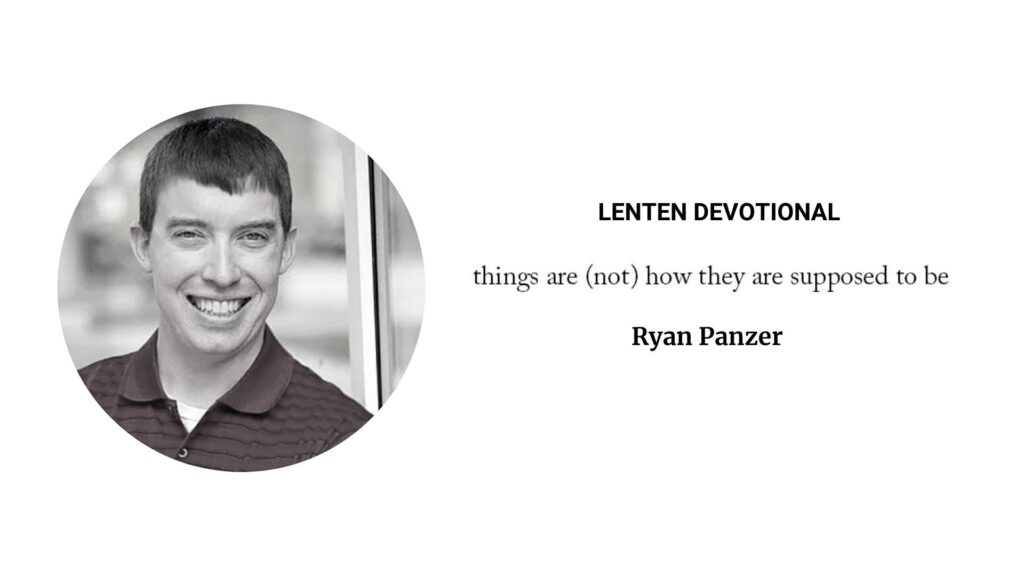Be willing to wait
Ryan Panzer reflects upon our instant-response culture and asks us to be willing to wait this Lent. Then, we can fully experience what God has planned for us.
I’m not particularly good at waiting. And I know I’m not the only one.
The pace of our digital age makes waiting all the more difficult. With lightning-fast internet and a world of apps and websites at our fingertips, we’re accustomed to on-demand experiences, where we get what we want – no wait required. When our needs are not fulfilled in an instant, we declare that our precious time has been wasted.
There’s one place in particular where waiting really bothers me – and that’s the grocery store. I seem to have a talent for choosing the slowest checkout line, especially when the store is busy. I never quite know how to handle the time spent waiting in the grocery check-out line. Should I scroll idly through my phone? Should I try to respond to another email, or catch up on the news headlines? Maybe I should be more like my two-year-old and glance eagerly at the cat and dog magazines conveniently displayed next to the register. Inevitably, the waiting ends, but on days where I wait even a few minutes, I leave the store insistent that my time has been wasted.
This Lent, we are called to consider what it means that things are not as they should be. Waiting is a fact of life. And there’s nothing unreasonable about waiting in line at a store where I can purchase nearly any edible good I so desire. It’s not the waiting that is out of place. Rather, it’s our culture’s unwillingness to wait that is unreasonable. This societal discomfort with waiting is not as it should be, leading to frustration, conflict, and resentment.
Jesus tells us a story of a man who planted a fig tree in a vineyard. After three years of waiting, the tree has yet to bear fruit, and the man has grown impatient. Irritated and perhaps a little hungry, the man orders his gardener to cut the tree down. Why should he wait any longer?
Fortunately for the fig tree, the gardener is more patient and gracious. He asks for more time, instructing the man that he will cut the tree down if it does not bear fruit one year later. The gardener asks the man to wait.
As we think about the spiritual disciplines of Lent, we may first think about practices of prayer and fasting, scripture study or charitable giving. But the gardener might suggest that there’s one key practice we may prefer to overlook: that of waiting.
For it is in the moments of waiting that we create the space for our world to grow and blossom. It is in the moments of waiting that we provide the means for the fig trees of our world to bear fruit. Our God is a God who waits for us, who deals with us graciously, even in seasons of life where we may not have much fruit to bear.
So as frustrating as it may be, let us learn to wait with more patience during this Lenten season.
Our culture is an on-demand culture that would prefer to squeeze the waiting out of life.
Our God is a God of patience, grace, and mercy. Jesus never stops waiting for us to bear fruit. He gives us all the time we need. Let us go and do likewise.

